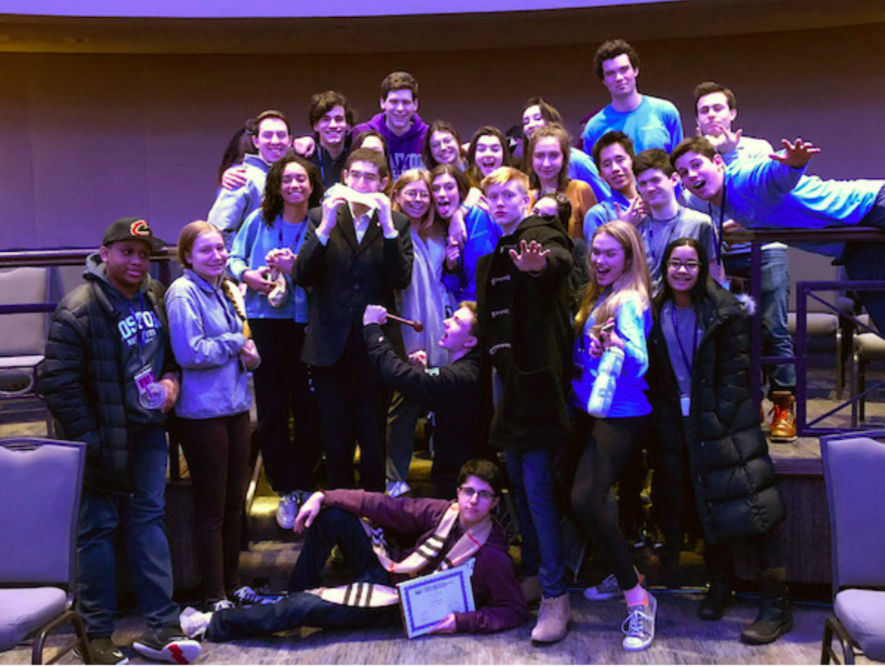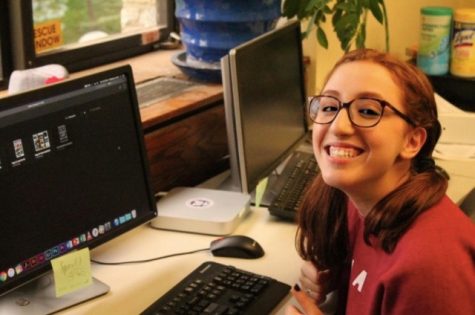Model United Nation provides platform for political debate
April 8, 2018
At Masters, current events and politics always seem to filter into discussion, in or out of the classroom. Model United Nations (MUN) helps students take those conversations to the next level by creating a forum for political debate. Comprised of over one-hundred dedicated delegates, Masters Model United Nations teaches students how to negotiate diplomatically and learn about global issues in depth.
Model United Nations, a program that exists in many schools, is designed for students to represent delegates or figures from particular countries in a simulation of United Nations assemblies. Each year the club attends three four-day conferences, each held at a college university. They are divided into several committees, typically including six general assemblies (Economic & Financial, Disarmament & Security, Social & Humanitarian, Legal, United Nations High Commissioner for Refugees, Special Political & Decolonization, and World Health Organization) that can be further broken down into specialized topics.
When the students arrive at the conference, they begin negotiating and with the other student representatives through formal and informal debate, and resolution-writing. “It’s a lot of thinking on your feet and coming up with fresh ideas,” Shawn Farhadian, Secretary of the club, said. Three weeks ago, a total of 25 Masters delegates returned from their first trip to North American Invitational Model United Nations (NAIMUN). According to leadership and faculty advisors, NAIMUN was the most challenging conference the group has attended thus far, totaling around 3,500 attendants from 200 schools. However, the students persevered: “We weren’t given the most ideal positions, but that gave us the ability to be free with our ideas,” Farhadian said. In the end, the team picked up four awards: Junior Sophia Brousset received a Verbal Commendation, Juniors Shawn Farhadian, Elijah Emery and David Oks received Honorable Mentions, and Henry Williams was awarded Best Delegate in his committee.
In between these conferences, members of the club undergo rigorous preparation through mock committee sessions, writing position papers, and conducting extensive research on the country and topic they are assigned. They also learn the language of parliamentary procedure– the formal mode of communication during committee sessions. In just two short weeks, forty students will be sent to the Cornell Model United Nations Conference (CMUNC), the final conference of the year.
“We got a lot more crisis committees and specialized committees than we usually get.” President Henry Williams said. He added that he hopes delegates will use their placement in small committees to their advantage by working extra hard to get their voices heard. In addition, Williams along with the rest of the club leadership expect that CMUNC will be the perfect environment for new delegates to gain some valuable experience.
Brendon Barrios, having two years of experience as the club’s faculty advisor, holds high expectations for the group. He reflected upon a time when he sent 25 delegates to the Washington Area Model United Nations Conference (WAMUNC) and returned with 21 awards. Since then, Barrios has been aiming to recreate that success: “An award is vindication for the hard work that our delegates are always putting in,” he said. “Knowing that we’re capable of that type of performance, it would be my dream for us to win as many awards as possible,” he added, referring to the group’s prior success at WAMUNC. Barrios is proud of the work his students have done thus far, and he looks forward to seeing the outcome.
Masters Model United Nations accepts new members of all ages at any point during the year. CMUNC will be taking place from Thursday, April 19, to Sunday, April 22.




